PBCer Stories Part 2
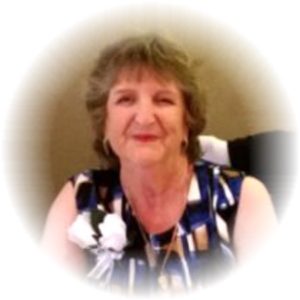
Doreen D.
Australia, Diagnosed 1988, Stage 2 now Stage 4, 73 years old
In 1988 I was feeling unwell and fainted, so off to the doctors I went. He examined me and said my liver was enlarged and he said can I ask how much you drink. I told him only socially at birthdays, Christmas, etc, and only then a glass or two. So after a load of tests, CT Scansand X-rays, I was told I had PBC. That I would need a liver transplant within 10 years if I lasted that long and was put on Prednisolone. I was very ill and depressed for the first 12/18 months, and as no support group existed here in Australia, my husband and I decided to returned to England December 1990 to be with family and friends for a while. Whilst there we got involved in raising funds for a new Liver Transplant Unit at the Freeman Hospital Newcastle upon Tyne UK which I attended.
My husband and I returned to Melbourne Australia. In May 1993, I was offered the chance to go into a two year trial for a new drug for PBC called Ursodeoxycholic acid known as Urso. It was a life saver and I was able to stop the Prednisolone.
In 1988 I was a co-founder of a PBC support group here in Australia, but had to leave the group through ill health. I was in 24 hour pain from a cyst in the liver. I had an operation to remove a large cyst from within my liver in July 2000, sadly the PBC support group ceased operation a few months later.
I now have a PBC Support Website and a Facebook page for Australian and New Zealand PBCers to be able to connect. I am very committed in trying to get PBCers here in Australia and NZ together. When you are first diagnosed with this rare liver disease, you think you are the only one and it does help to talk to others that understand what you are going through. In some of the states of Australia there have been PBCers connecting at coffee meetups.
I have many other health issues to cope with and was diagnosed with a (MPN) Myeloproliferative neoplasms called Polycythaemia Vera, and two of the main symptoms are fatigue and itching. I have been to a few conferences run by the Australian Leukaemia Foundation as I think this is more of a worry than my PBC. I am a high risk for stroke or heart attack because of my blood being too thick, so I am on aspirin and a chemotherapy drug called Hydrea to reduce blood cell production in the bone marrow.
I use Systane eye drops for my dry eyes and E 45 itch cream for itch, but do have scars on my feet and ankles and front of my legs as that is the area I suffer most from the itch.
I am a very positive person, and when I have bad days I say to myself there is always someone else worse than you. I have my cat and dog to keep me busy. I moved to the country to be near family after the death of my husband two years ago. He had a massive stroke in 2007, and I looked after him at home. I was his full time caregiver until February 2015 when he was admitted into hospital where he passed 3 weeks later after being diagnosed with cancer.
I am enjoying my family and some “me” time, and planning a trip to the UK with my granddaughter.
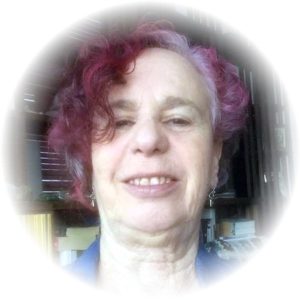
Amy C.
Reykjavik, Iceland, Diagnosed 2003, Stage 2-3 overlap
I was diagnosed at the age of 52 by chance after high liver enzymes showed up on successive blood tests. My GP sent me to a liver specialist who coincidentally had done research with Dr Eric Gershwin. He diagnosed me fairly quickly by AMA + blood test results and biopsy.
At the time of diagnosis, I had been experiencing itching on the bottoms of my feet and had noticed that my stamina was decreasing. I was a very active person, cycling and hiking in my spare time and working outdoors all summer. It was only in hindsight that I connected these symptoms to PBC. My doctor believes I had it for at least 5 years before diagnosis. I started on urso right away and the itching stopped. Within 3 months my LFTs were back to normal range and have stayed there for 14 years. I was lucky in a small country like Iceland to have a doctor so knowledgeable about PBC. He told me about the PBCers web page and encouraged me to learn as much about the disease as I could. He always has time to answer my questions and has been extremely supportive throughout the years.
Fatigue has been my main symptom, along with brain fog. In 2008 a cognitive assessment was done and clearly showed that my ability to concentrate was greatly impaired. I had been working as a research geologist, doing field work, analyzing data and writing reports. Because of my symptoms, it became very difficult to work. I tried taking provigil for a few months, but it was of limited help and eventually stopped being effective. In 2006 I started working part time, and at the end of 2008 I stopped work entirely.
In 2009 I developed cyclical fevers of unknown origin. I also had 1000’s of “floaters” in one eye. I was diagnosed with uveitis. A lumbar puncture showed white blood cells in my cerebro-spinal fluid. While my eye responded quickly to treatment with prednisone, the cyclic fevers persisted for almost 3 years. I went through countless tests and various treatments, but nothing definitive was diagnosed. I was ultimately told it was “autoimmune meningitis” most likely related to the PBC. During this time, I had a second liver biopsy. It showed decreased inflammation and no increase in scarring, so basically no progression of PBC. Finally, after a 3 month course of doxycycline, the fevers gradually stopped in early 2012. Since then, I have been feeling better and have been more active than at any time since diagnosis.
Being diagnosed with PBC was frightening at first as I experienced fear, despair and mostly denial. I tried to pretend that I was fine and continued to go about my business as best I could. But the fatigue and brain fog caught up with me and I had to face the undeniable fact that PBC was going to impact my life whether I wanted it or not. I was fortunate to be able to stop working, and although it was a blow, both financially and emotionally, it was the best decision I have made. My life became better when I accepted my new reality. I had a lot of help along the way, including a wonderful therapist, supportive doctors and an understanding partner who stood by me during my worst times, came with me to doctor’s appointments and found ways for us to enjoy life together. I also found amazing support and friendship in PBC related Facebook groups, exchanging information, struggles and laughter with PBCers all over the world.
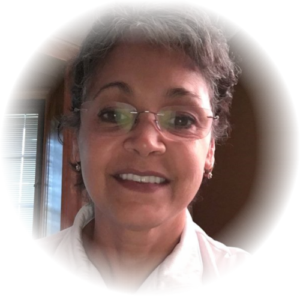
Ivette
IL, Diagnosed 1999 Stage 1 now stage 4
My story began in August, 1999 when I was renewing my life insurance policy and had blood drawn. A week later I received a letter in the mail saying my policy was denied due to “highly elevated liver enzymes”. I thought it was a mistake so I had labs repeated and they were elevated even more than before. My doctor then referred me to a hepatologist, who reran new labs and ordered a scan. By simply looking at my scan he was pretty sure that I had early stage liver disease by the amount of inflammation, saying it was most likely Primary Biliary Cholangitis (PBC), but he would have to confirm it with a liver biopsy. Shortly thereafter, indeed the diagnosis was PBC, stage 1. Although I was asymptomatic, he prescribed the appropriate medication at the time.
I continued to research and tried to learn as much as I could about PBC. I was very afraid because my children were so young (daughter 7 yrs., son 2 yrs.) and I didn’t want to die and leave my husband and them so soon. It was a very emotional time not knowing what would happen, how fast the illness would progress, if I would need a transplant or die waiting for one. So many questions tormented me. As much as you tried not to think about it, you couldn’t help yourself. I cried in silence when I was alone because I didn’t want them to see me and worry.
Finally I joined the PBCERS Organization in January, 2000. That was my saving grace. I received the much needed support I was looking for and talking to others who had the same illness really helped a lot. I attended my first conference in June, 2000 and it was life changing. I met Linie, founder of the PBCERS Organization, and the Executive Committee, other members I had communicated with by email only, so putting a face with the name was so therapeutic. It all became so real. I had not known what to expect, but one thing I noticed is that we did not look sick. We looked normal and that somehow made me feel better. I met people at different stages, some had received transplants, others were on the transplant list. We had instantly formed a bond. We had a rare, incurable illness, but the silver lining was meeting others who shared a common interest in education, promoting awareness, raising funds for research, participating in clinical studies, and offering each other unconditional support. I no longer felt so alone.
One of the most helpful coping mechanisms was restarting the support group in Chicago in 2000, which is still active to this day. It brings me joy to help others newly diagnosed or who have never met a PBC patient in person to get together, ease their concerns, answer any questions based our own experiences, and give each other valuable support and friendship. It truly feels like a family when we get together. My greatest support system has been my husband from the very start, he is my rock; and my children too (who argue now over who will be my living donor). Of course, I can also count on my parents at any time, family & friends. I take very good care of myself and have always complied with doctor appointments, taking my medications and getting all routine tests done. I believe in being proactive with our health and becoming partners with your medical team. I’m Stage 4 now, but I’ve learned to pace myself and live with PBC — it’s not all I am.
Judy W.
Diagnosed 1996, Stage 1
I was only 52 years old and in what I thought was good health other than having an underactive thyroid since age 10; (IE: hypothyroidism). I went for my annual physical and my doctor ran blood work and told me my liver test results were abnormal. When she did further investigation, she found I had huge gallstones and I ended up having my gallbladder removed.
After several weeks, there was no change in my bloodwork. My liver tests were still abnormal so my doctor referred me to a gastroenterologist. After two tests to examine my bile ducts and a liver biopsy, I was diagnosed with stage one PBC (previously known as Primary Biliary Cirrhosis). This same year I was dx with Osteoporosis.
The specialist told me that PBC is progressive and that I would eventually need a liver transplant. He also prescribed Urso, a medication that could help slow down the disease and suggested that I go on the internet to learn more. The problem was, I didn’t own a computer and had never even used one. My daughter helped me with the research but the information she printed out for me scared us both!
21 years later however, I consider myself lucky to still be at barely stage one and almost asymptomatic. Unfortunately, fatigue often rules my life. Daily naps are almost imperative. Take today for example. I enjoyed 8 hours of sleep, ran a couple of errands and was going to do more but I physically couldn’t. I had to come straight home and crawl into bed to sleep for 1 ½ hours.
In addition, despite having had a career as a banker and holding several positions on community boards, there are times now that my ‘foggy brain’ makes me feel stupid.
My advice to others would be to make sure your doctor runs liver tests and to get a copy of the results. Ask questions about anything that is not in the normal range. Because I had a doctor who was diligent, I was diagnosed and was put on medication at a very early stage.
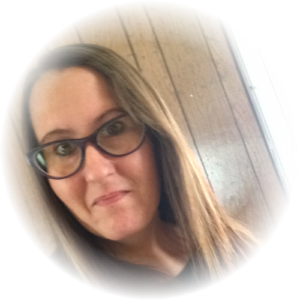
Katie L.
Nebraska, Diagnosed 2010, Stage 1
It was a mystery; at least to me and my doc at the time. After having my gallbladder out in 2006; that’s when all the trouble began for me. Liver functions all over the place, upper right quadrant pain was unbelievable horrible. I did have itching, but never in a 100 years would I think that liver issues would cause itching. But, not much was done after going to two GI Docs since 2006 and not one answer.
So, in 2010, I advocated for myself. And took a trip down to Rochester, MN – Mayo Clinic. There after going through the GI work up and 10 days later, found out I had PBC. With all my records that I brought with me, my liver functions were chronically elevated and with the AMA test result; plus GGTP and others, but was diagnosed with PBC.
After being diagnosed, I was scared. I’m so grateful for having access to the internet and joining the PBCers. That was best thing ever! I’ve met some great friends from there! The advice and kindness will forever stay dear to me! Thank you PBCERS!!! One of these days, I will get out to a conference!
I was diagnosed when I was 29 years old; I’m now 36. I had my first liver biopsy in 2012 and then Fibro Scan in 2016 and I’m still at stage 1. No progression, despite me not responding to Ursodiol. I still take it it, but my numbers never really get normal.
Despite being diagnosed with PBC, I’m a mother, a wife, a fur baby mom, and full time employee. My diagnosis doesn’t define who I am. I won’t let it stop me doing the things I love; furthermore, won’t let it stop me from being me!
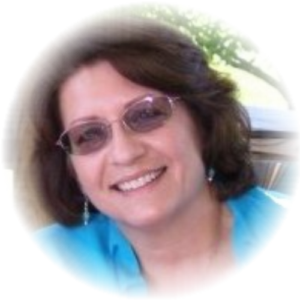
Paula F.
Missouri, Diagnosed in 1997, Stage 2
I was 39 when I was diagnosed with PBC. My faulty gall bladder and the blood work involved in the testing showed I had elevated liver enzymes. Soon I was referred to a hepatologist, who diagnosed my PBC after confirmation from a liver biopsy.
After the diagnosis, I thought, “Leave it to me to get something I’ve never heard of!” Twenty years ago, there wasn’t much information about PBC. I searched online and only found one article on it. I felt very alone. I wondered if I’d live to see my children raised. I felt cheated because I didn’t think cirrhosis hit people who didn’t drink.
Today, I’m 59 and God has allowed me to see my children raised and 3 grandchildren be born. I’m still able to work, although I struggle with severe fatigue.
My PBC is progressing slowly, but I now have two other autoimmune diseases – Sjogren’s and psoriasis. Sometimes, it feels like I’m falling apart, but I know my health could be much worse. I’m thankful for every day that I have and try to remain positive, learning all I can to manage these diseases. I read all I can about nutritional supplements and take ones I feel will help my liver stay healthy. I’ve always been one to want to treat things naturally. My doctor has told me to keep doing what I’m doing!
After having one of my pity parties, I reasoned that PBC might not be what kills me. Worrying and feeling sorry for myself wasn’t allowing me to live my life. I decided that I was not going to feel sorry for myself! So if I can offer any advice to newly diagnosed PBCer’s it would be – don’t despair. PBC is not an automatic death sentence. You can live many years with PBC. If the good Lord allows, I intend to do just that!
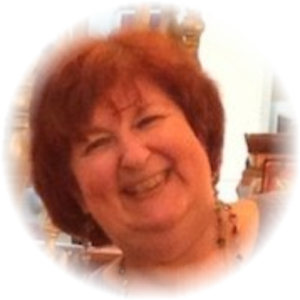
Sharon G.
Pennsylvania, Diagnosed 1998, stage 1-2
I Have an Autoimmune Liver Disease- PBC
I remember how I felt when I found out that I had PBC- a liver disease! I was a recent widow, 52 years young, and scared to death.
In 2006, I went to China for 2 weeks of touring. I also took my Urso with me. I taught until June, ’03 when I retired because I had over 35 years and was eligible. Chances are that I had PBC for many years before I was diagnosed. I attributed any fatigue I had to my active life- full-time teacher, mom of 2 with lots of activities, officer of my synagogue Sisterhood.
I learned that PBC is not a death sentence. It is an autoimmune disease that I could not control. Nothing I did brought this on.
I told my family that I have an autoimmune liver disease. My body has designated my bile ducts as an enemy that have to be destroyed.
My hepatologist is the head of the liver transplant center at a teaching hospital here in Philadelphia and my doctors know to call his office before I get any medication.
As a little side note- I had a fluky heart attack in 2003. I have no blockages or heart disease. One of my small arterial branches went into spasm, causing my cardiac enzymes to go sky high. The cardiologist was sure that I had an 80{8a67dea16ade4df0bdc75a32af750148bf01dab229db39fe87e8dd3665ac86f1} blockage and was ready to do bypass surgery on me. Thank goodness, the cardiac cath showed no problems. Meanwhile, he saw that my cholesterol is high. He wanted to prescribe some cholesterol meds, while I was still in the hospital (I was there 2 days). I told him to call my hepa. Guess what- hepa said no, and I don’t take cholesterol medication. The other medications he prescribed passed my hepa’s approval.
I have had eczema since I was a child, now diagnosed as psoriasis. My hepa will not allow any internal medications, and my dermatologist has prescribed topical ointments which work quite well. I am careful of all supplements and herbals. Some are not liver-friendly, such as black cohosh and red rice yeast.
I have always had wonderful family support. I remarried in 2002 to a man who found that my biggest flaw was not an autoimmune disease. He has learned almost as much about PBC as my daughter and I have. It is important to have someone who knows that whatever symptoms a PBCer has are real, and not imagined.
Now that I’m almost 19 years post-diagnosis, I’m beginning to experience pains in my arms, hands, wrists, fingers and legs that have started to keep me from doing everything I had before. I guess some of it is “old age” (whatever that is). I now take pain meds I hadn’t before, and pray for good weather, since my pains increase right before rain or snow.
I have always enjoyed the conferences where I met my PBC family and the angels who are working to find the cause, best treatments, and the cure.
Wendy S.
Ohio, Diagnosed 2013, Stage 0-1
I was always a very energetic person. In July of 2013, I told my GP at my physical that I felt less energetic than normal. I was 56 years old. He knew I already had Raynaud’s disease for the last 15 to 20 years or more and LS diagnosed in 2011. I am sure a lot of this had to do with the stress of putting my mom in a nursing home and trying to help my brother out with his health problems and MS.
My GP took an extra blood test in July 2013, because I said something about my energy level, he took an ANA test. He called me a week later, asked me to take another blood test “AMA.” He thought I might have PBC. A week later he called and told me that the test was positive. Then he
wanted me to see a liver specialist.
The hepatologist told me once you have one Auto Immune disease you could end up with a group of them. I didn’t have any symptoms of PBC disease. I really don’t feel fatigued. So, I had to have a biopsy done and that proved positive. I am in early stages of this disease. Stage 0-1. My hepatologist had no problems with me going to see a Natural doctor.
Then I started seeing a natural doctor in September 2013. I did feel better than before, even though no one could tell I had anything wrong. I had been on a wholebody cleanse for 3 months. The wholebody cleanse was (Standard Process) products, vegetables and fruit along with raw nuts. No sugar, dairy, breads or meat the first month. It was pretty rough at first. I lost weight throughout the natural diet. I started to look sick. I went from 126 down to 106pounds. I was taking several different (Standard Process) supplements and other supplements. This went on for about 6 months.
My hepatologist wanted me to have a blood test After 3 months. Since starting with natural doctor my AST, ALT levels started elevating. I had normal AST,ALT levels before I started. I had blood work done for the next 3 months in a row. The levels kept going up and continued to go up after I
quit going to the natural doctor in April of 2014. I was taking about 32 supplements, several of each. This was starting to make me nervous.
By June of 2014 my levels were 5 times the amount they should have been. I began to think it was something I was eating or taking that was causing it to go up. I had watched the movies taken from a recent conference. The nutritionist said to stay away from nuts because of high copper in them. I quit eating raw nuts, oatmeal, cinnamon and honey in the oatmeal, flax seed oil, biotin, vitamin B 12, and vitamin E and all supplement. My levels were 1 point above normal in 1 month. The Doctor asked what I did. My levels came down 5 folds. I felt like a pin cushion, I was having blood work done once a month for 6 months.
I found PBCERS after quitting the natural Doctor in April of 2014. It has really helped me just reading others stories and finding out many who have survived many years after diagnoses.
Now a few years later, I’m starting to meet other people with this disease through the ALF. They have started having meetings for PBCERS.
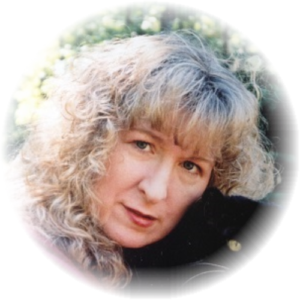
Deborah B.
Diagnosed 2006, early stage
At first, receiving a diagnosis of a rare, genetic condition can be quite alarming. However, there is life after a PBC diagnosis. In my case, my condition has not significantly progressed.
My ultimate PBC diagnosis gave me clarity on my life. After I took action steps to adapt, I took a walk in nature to refocus. This helped me unveil the things that bring me joy and gratitude. For my healing, it meant less time on the internet, and more time nurturing my soul with things that fuel my happiness. My PBC diagnosis taught me to appreciate the souls in my life, and value the life in my soul. I embrace today, as I know my body is listening.
Prior to my PBC diagnosis, things were not so clear. Around 2000, at age 45, my liver enzyme labs were mildly elevated. I also had hip pain which caused me to stop my aerobic classes and ballroom dance. It was believed, at the time, that the elevated labs may have been from aspirin. So, I stopped consuming any aspirin, and stopped the occasional glass of wine, to determine if that made any significant difference. At this time, no diagnosis was made.
Then one day in November 2005, at age 50, more strange symptoms began to occur. I had a horrific DRY mouth, which made it difficult to swallow. I had salivary gland pain that radiated from my jaw to my ears. Oddly, my skin felt sunburn, dry and prickly. My flushed face broke into a rash. I also had stomach pain and unintended weight loss. Some of these symptoms are not typical for PBC. My AMA and ANA labs were both positive. However, I had a normal Alkaline Phosphatase, which would typically be elevated for a PBC diagnosis.
In July 2006, I had a biopsy to analyze for PBC or possibly autoimmune hepatitis (AIH). At that time, I was diagnosed with early stage PBC, and started a prescription. My liver enzymes returned to normal within a few months. After that, I became a participant in the Mayo Clinic PBC genetic research study.
Around October 2006, at age 51, I still had the dry mouth, and other symptoms. I was treated for intestinal permeability, and was advised by a specialist to stop consuming Gluten, (even though my Celiac tests were normal). Within 4 weeks all of my horrible symptoms stopped, and thankfully have NOT returned! Under the care of the specialist, I noticed that I felt better without specific foods. For my unique situation, I consume no gluten, dairy, soy, tomatoes, sulfites, and a minimum amount of sugar.
In December 2016, at age 61, I am happy to say that a scan revealed that I am still early stage, and my lab tests have been predominately normal. I do NOT have the PBC itch. I do NOT have the PBC fatigue. I continue to consume gluten free (GF) whole foods and supplements. However, I silently still have PBC, of which there is no cure.
This journey, means adapting to things that cannot be changed. There are occasional decisions to make when encountering obstacles or forks in the path, and there are uncertainties of where each path may lead. However, overall, I feel gratitude, as the path I have traveled, thus far, has offered me a reasonably normal life.
It is time for my next walk.
Would you like to walk with me?
Continue to PBCers Stories Part 3
